In the May 2020 issue of the Midmonth Book Notes, you’ll read about the latest in romance and women’s fiction, selected by our resident expert, John Charles!
Linda Castillo’s Distractions

I can’t wait for Linda Castillo’s new Kate Burkholder novel, Outsider. If you’re smart, you’ll pre-order the July 7 release. Signed copies will be available, through the Web Store. You can also order copies of Castillo’s other books there. https://bit.ly/2TDPi4M
Linda Castillo is the New York Times bestselling author of the Kate Burkholder novels, including Sworn to Silence which was adapted into a Lifetime Original Movie titled An Amish Murder starring Neve Campbell as Kate Burkholder. Castillo is the recipient of numerous industry awards including a nomination by the International Thriller Writers for Best Hardcover, the Daphne du Maurier Award of Excellence, and a nomination for the RITA. In addition to writing, Castillo’s other passion is horses. She lives in Texas with her husband and is currently at work on her next novel.
Even in all the turmoil of moving and building a house, Linda Castillo did make time to talk about book “Distractions” for us. Look in the Web Store for her suggestions. https://store.poisonedpen.com/
*****
While we’re in the midst of this unsettling and uncertain time, reading is the one thing we can count on—for so many things. Escapism. Comfort. Hope. Laughter. Or, at the other end of the entertainment spectrum, maybe you’re in the mood for adventure. Travel to an exotic land. The intellectual challenge of a twisty mystery. Or an old-fashioned thrill ride. Whatever the case, reading sweeps us away and delivers us to the places we want to go.
I don’t often re-read novels. I made an exception for William Fortstchen’s ONE SECOND AFTER. Talk about a thrill ride, and a storyline that’s all the more meaningful—and frightening—in light of the challenging times we face today. ONE SECOND AFTER is a post-apocalyptic thriller set in the aftermath of an electromagnetic pulse that catapults the United States back into the dark ages. It’s a scary and entertaining story of survival that held me spellbound.
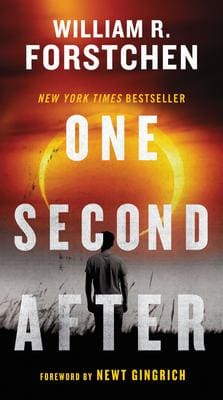
I’m a little late to the party with this one, but CJ Box’s THE HIGHWAY was a fantastic read. There aren’t many books that truly surprise me or contain some twist I wasn’t expecting. Not the case with THE HIGHWAY. This one moves at the speed of light, grips you tightly, wraps you in suspense, and then comes the twist at the most unexpected moment. It’s a dark and scary crime novel you won’t be able to put down.

I’m currently reading Long Bright River by Liz Moore and it’s so good I want to give it a shout out. It’s a thought-provoking crime novel set in Philadelphia about two sisters. One of the sisters is a cop, the other lives on the street—and goes missing. This story is moody and fresh with a strong sense of place. It’s also a moving story and it swept me in from the get go.
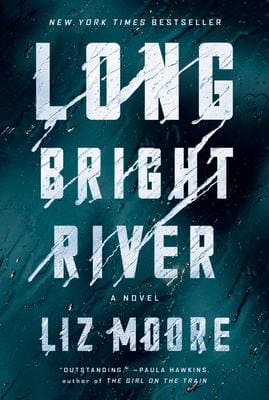
I would be remiss not to mention the books on my towering TBR stack. I’m anxiously awaiting Lisa Unger’s CONFESSIONS ON THE 7:45, which will be released on October 6. Everything she writes is pure dynamite and I know this one will be well worth the wait. I’m also looking forward to reading Jennifer Hillier’s LITTLE SECRETS, which was released on April 21, and Heather Gudenkauf’s latest, THIS IS HOW I LIVED, which is out on May 12.
*****
I’m sure readers are looking forward to Linda Castillo’s Outsider as well.
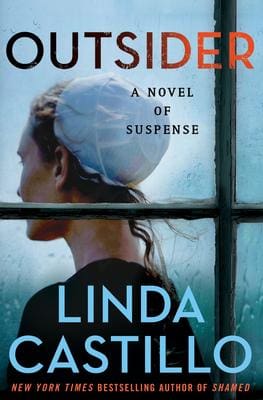
Linda Castillo follows her instant New York Times bestseller, Shamed, with Outsider, an electrifying thriller about a woman on the run hiding among the Amish.
While enjoying a sleigh ride with his children, Amish widower Adam Lengacher discovers a car stuck in a snowdrift and an unconscious woman inside. He calls upon Chief of Police Kate Burkholder for help, and she is surprised to recognize the driver: fellow cop and her former friend, Gina Colorosa.
Years before, Kate and Gina were best friends at the police academy and patrol officers in Columbus, but time and distance have taken them down two very different paths. Now, Gina reveals a shocking story of betrayal and revenge that has forced her to run for her life. She’s desperate for protection, and the only person she can trust is Kate—but can Kate trust her? Or will Gina’s dark past put them all in danger?
As a blizzard bears down on Painters Mill, Kate helps Gina go into hiding on Adam’s farm. While the tough-skinned Gina struggles to adjust to the Amish lifestyle, Kate and state agent John Tomasetti delve into the incident that caused Gina to flee. But as Kate gets closer to the truth, a killer lies in wait. When violence strikes, she must confront a devastating truth that changes everything she thought she knew not only about friendship, but the institution to which she’s devoted her life.
Martin Walker & The Hot Book of the Week
Martin Walker’s latest Bruno, Chief of Police novel, The Shooting at Chateau Rock, is the current Hot Book of the Week at The Poisoned Pen. There are signed copies of that book, and copies of Walker’s other books, available through the Web Store. https://bit.ly/2K7FkC1
Here’s the summary of The Shooting at Chateau Rock.
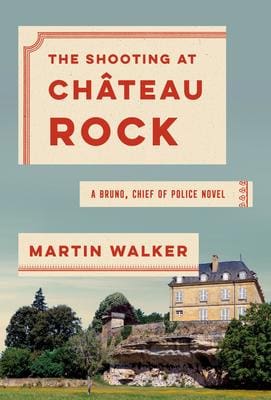
When a local’s troubling death is linked to a Russian oligarch and his multinational conglomerate, Bruno faces one of his toughest cases yet, one that brings together a French notary and a rock star–and, of course, Bergerac red and white.
It’s summer in the Dordogne. The heirs of a Périgordian sheep farmer learn that they have been disinherited, and their father’s estate sold to an insurance company in return for a policy that will place him in a five-star retirement home for the rest of his life. But the farmer never gets his life of luxury–he dies before moving in. Was it a natural death? Was there foul play? Bruno begins the investigation that leads him to several shadowy insurance companies owned by a Russian oligarch with a Cypriot passport. The companies are based in Cyprus, Malta, and Luxembourg, but Bruno finds a weak spot in France: the Russian’s France-based notaire and insurance agent. As Bruno is pursuing this lead, the oligarch’s daughter turns up in the Périgord, and complications ensue, eventually bringing the action to the château of an aging rock star. But, as ever, Bruno makes time for lunch amid it all.
*****
If you’d like to watch Martin Walker in conversation with Barbara Peters, owner of The Poisoned Pen, click on the link below, or check the bookstore’s Facebook page.
Lisa Black’s Distractions

A Gardiner and Renner novel. If you’re a fan of Lisa Black’s series, you’ll recognize the names of her series characters. If you haven’t yet discovered her books, you can read about the forthcoming title, Every Kind of Wicked, after her book “Distractons” post. Her books, and the ones she suggests, are available to order through the Web Store. https://store.poisonedpen.com/
New York Times bestselling author Lisa Black introduced the characters of Maggie Gardiner and Jack Renner in her acclaimed suspense novel That Darkness and continued their story in Unpunished, Perish, Suffer the Children, and Let Justice Descend. As a forensic scientist at the Cuyahoga County Coroner’s Office, she analyzed gunshot residue on hands and clothing, hairs, fibers, paint, glass, DNA, blood and many other forms of trace evidence, as well as crime scenes. Now she is a latent print examiner and crime scene analyst for the Cape Coral Police Department in Florida, working mostly with fingerprints and crime scenes.
Lisa is a member of the American Academy of Forensic Sciences, the International Association for Identification, and the International Association of Bloodstain Pattern Analysts, and she is a Certified Crime Scene Analyst and Certified Latent Print Examiner. She has testified in court as an expert witness more than sixty-five times. Her books have been translated into six languages. She lives near Fort Myers, Florida. Visit her on Facebook, Twitter, or at www.lisa-black.com.
Now, check out Lisa Black’s book “Distractions”.
*****
Once I got over the disappointment of cancelled trips, I became quite comfortable with quarantine–but then, I’m still going to work regularly with only slightly truncated hours and I’m not trying to home-school young children, so I can afford to be. I work at a police department as a CSI and latent print examiner, so I’m “˜essential.’ First time in my life I’ve been accused of that!
Yes, my husband lost his job, but I think we’ll be okay for at least a couple of months. And not being able to go to church, community orchestra practice, or friends’ homes has freed up a lot of time to write blogs and work on a marketing strategy for my August release. I tear up at every PSA that speaks of how we’re all in this together, but I also feel guiltily giddy at having finished a book last week.
And more free time, of course, means more time to read. Here’s my list:
Checkmate, by Karna Small Bodman, one of my blog partners in Rogue Women Writers.
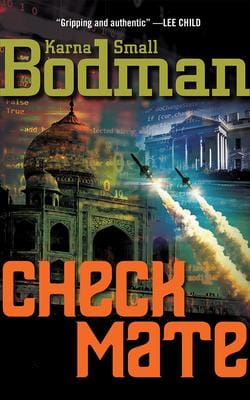
Brilliant scientist Dr. Cameron Talbot is working on a new missile defense system and everyone wants to get their hands on it, her teammate, their business rival, a jihadist angered at the India-Pakistan conflict over Kashmir. National Security Council agent Hunter Daniels sees the benefits of the system and works with her to keep it safe, but this is no meet-cute romance; Cammy is too strong–and wary–to fall easily.
Chase Darkness With Me, by Billy Jensen.
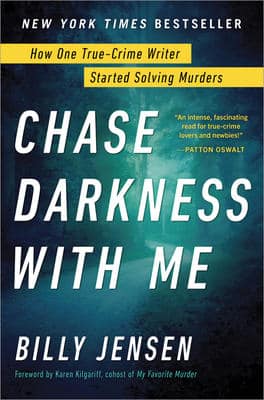
I wanted to read this because I’m plotting out a book that revolves around a group of “˜citizen detectives’ trying to solve a cold case. Billy Jensen has a podcast called Holes, which examines less-well-known cold cases, and I wanted to learn about the techniques used. I enjoyed it, but it did seem to jump around quite a bit, hopping from story to story and that made it a little difficult to follow. But he did some amazing things, making large use of social media to spread photos and stories until information surfaced.
The Assassins by Gayle Lynds, another Rogue Women Writer.
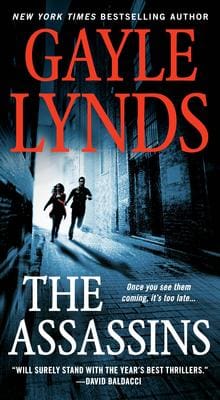
Six different assassins from six different countries–the variety is one of the most fun things about this book–steal a stone tablet as Bagdad falls. (I really liked that it was a stone tablet instead of a painting! Let sculpture have its glory.) Ten years later, government agent Judd Ryder returns from overseas a bit early and makes the uncomfortable discovery that he has a double who’s been impersonating him. The double is instantly murdered, but who was the target? He teams up again with Eva Blake, whom we met in The Book of Spies, since someone is using them as bait to bring the biggest, baddest assassin out of hiding. I liked that the characters were realistic and the action, non-stop.
The Man in the Rockefeller Suit, by Mark Seal.
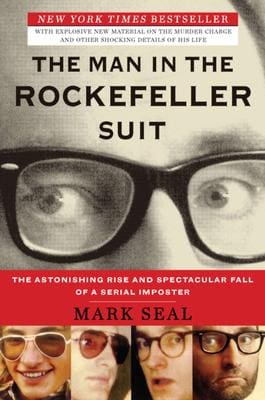
My August release deals with scammers, a personal vendetta of mine, so I had to read this true story of a German expat who conned his way through the States for thirty years. During the last twelve he convinced uber-rich and not-wealthy Americans alike that he was a descendent of the John D. Rockefeller, with all the riches that family commands. Oh, and it turns out he also murdered a few people to do it. I’m always fascinated by grifters–how they can be such good actors, put so much attention and intelligence into their research, while so callous that they’ll take innocent people’s emotions, money and lives without the slightest shred of remorse.
*****
The sixth book in Lisa Black’s Gardiner & Renner series, Every Kind of Wicked, will be released on August 25. You can pre-order it through the Web Store. https://bit.ly/3giyQks
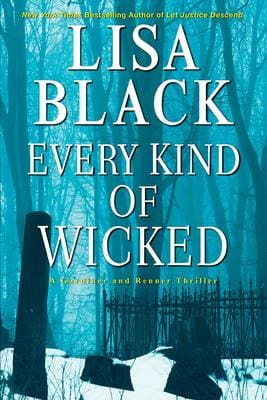
In this mesmerizing new novel from bestselling author Lisa Black, the discovery of a young man’s corpse leads forensics expert Maggie Gardiner and Cleveland detective Jack Renner into a dark and dangerous web of lies . . .
Life and death have brought Maggie Gardiner full circle, back to the Erie Street Cemetery where she first entered Jack Renner’s orbit. Eight months ago, she learned what Jack would do in the name of justice. More unsettling still, she discovered how far she would go to cover his tracks. Now a young man sprawls atop a snowy grave, his heart shredded by a single wound. A key card in the victim’s wallet leads to the local university’s student housing—and to a grieving girlfriend with an unsettling agenda.
Maggie’s struggle to appease her conscience is complicated by her ex-husband, Rick, who’s convinced that Jack is connected to a series of vigilante killings. Also a homicide detective, Rick investigates what seems like a routine overdose on Cleveland’s West Side; but here, too, the appearance belies a deeper truth.
Rick’s case and Jack’s merge onto the trail of a shadowy, pill-pushing physician who is everywhere and nowhere at once, while Maggie and Jack uncover a massive financial shakedown hiding in plain sight. And when Rick’s bloody fingerprint is found at another murder scene, Maggie’s world comes undone in a violent, irreversible torrent of events . . .
*****
The fifth in the series, Let Justice Descend, will be released in paperback on June 30.
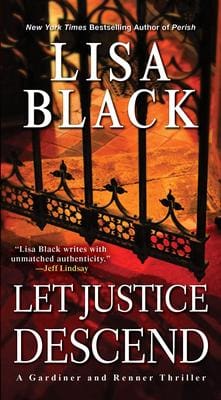
Forensics expert Maggie Gardiner and Cleveland detective Jack Renner believe in delivering justice. One follows the rules. The other follows a darker path . . .
Three days before a key election, U.S. Senator Diane Cragin is electrocuted on her own doorstep—a shocking twist in an already brutal political race. The obvious culprit is Cragin’s rival Joey Green, a city official who’s had his hand in every till in town for the past twenty years. But after discovering a fortune in cash in Cragin’s safe, Maggie and Jack suspect they’ve stepped into a much bigger conspiracy—and they’d better watch their backs.
Dogged by a reporter on the verge of discovering the truth about Jack’s deadly brand of justice, Maggie and Jack plow through a city seething with corruption. As one murder leads to another, and another, their only chance to stop a killer requires trusting each other. Easier said than done . . .
Praise for Lisa Black and Her Gardiner and Renner Thrillers
“A must read!” —Charles Todd
“Black keeps the suspense high throughout.” —Publishers Weekly
“Well-plotted and paced . . . with a pair of intriguing protagonists.” —Booklist
“One of the best storytellers around.” —Tess Gerritsen
Peter Robinson, In Conversation
One thing about virtual book chats. They allow readers to eavesdrop on authors from all over the world. Peter Robinson was in Toronto for a recent conversation. Books in Robinson’s DCI Alan Banks series, the television series, Yorkshire, where to be during Covid-19. As always, Barbara Peters, owner of the Poisoned Pen Bookstore, has a wide-ranging conversation with the featured author. Robinson’s latest book, Many Rivers to Cross, and many of his other ones, are available through the Web Store. https://bit.ly/3gjsaSU
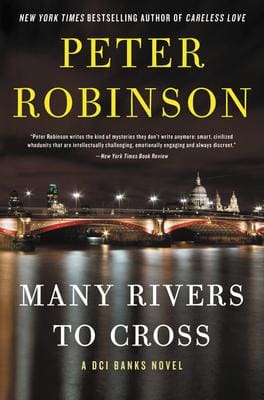
Here’s the summary of Many Rivers to Cross.
Peter Robinson, the acclaimed author of the bestselling series Stephen King calls “the best now on the market,” returns with a gripping, emotionally charged mystery in which the revered detective Alan Banks must find the truth about a murder with possible racial overtones—and save a friend from ruin.
In Eastvale, a young Middle Eastern boy is found dead, his body stuffed into a wheelie bin on the East Side Estate. Detective Superintendent Alan Banks and his team know they must tread carefully to solve this sensitive case, but tensions rise when they learn that the victim was stabbed somewhere else and dumped. Who is the boy, and where did he come from?
Then, in a decayed area of Eastvale scheduled for redevelopment, a heroin addict is found dead. Was this just another tragic overdose, or something darker?
To prevent tensions from reaching a boiling point, Banks must find answers quickly. Yet just when he needs to be at his sharpest, the seasoned detective finds himself distracted by a close friend’s increasingly precarious situation. Banks needs a break—and gets one when he finds a connection to a real estate developer who could be the key to finding the truth.
With so many loose ends dangling, there is one thing Banks is sure of—solving the case will come at a terrible cost.
*****
Enjoy the conversation!
Kate White, A Conversation
Kate White went from editor of Cosmopolitan to writing thrillers. Her latest novel is Have You Seen Me?. You can order copies of her books through the Web Store. https://bit.ly/2A2jRKu

Here’s the summary of Have You Seen Me?
From New York Times bestselling author Kate White comes a gripping novel about one woman’s dangerous quest to recover lost memories someone would rather she never find.
The key to her missing memories could bring relief—or unlock her worst nightmares.
On a cold, rainy morning, finance journalist Ally Linden arrives soaked to the bone at her Manhattan office, only to find that she’s forgotten her keycard. When her boss shows, he’s shocked to see her—because, he explains, she hasn’t worked there in five years.
Ally knows her name, but is having trouble coming up with much beyond that, though after a trip to the psychiatric ER, she begins to piece together important facts: she lives on the Upper West Side; she’s now a freelance journalist; she’s married to a terrific man named Hugh. More memories materialize and yet she still can’t recall anything about the previous two days. Diagnosed as having experienced a dissociative state, she starts to wonder if it may have been triggered by something she saw. Could she have witnessed an accident—or worse—had something happened to her?
Desperate for answers, Ally tries to track where she spent the missing days, but every detail she unearths points to an explanation that’s increasingly ominous, and it’s clear someone wants to prevent her from learning where those forty-eight hours went. In order to uncover the truth, Ally must dig deep into the secrets of her past—and outsmart the person who seems determined to silence her.
*****
You might enjoy the conversation between Kate White and Barbara Peters, owner of The Poisoned Pen, who have been friends for quite a while.
Mariah Fredericks’ Distractions

Mariah Fredericks’ Jane Prescott mysteries are set in New York City in the early twentieth century, and the author has a degree in history, so it’s not really a surprise that her suggested book distractions are set in the past. You can find Fredericks’ books, and her suggestions, in the Web Store. https://store.poisonedpen.com/
Mariah Fredericks was born and raised in New York City, where she still lives today with her family. She is a graduate of Vassar College with a BA in history. She has written several novels for young adults; her novel Crunch Time was nominated for an Edgar in 2007. A Death of No Importance, her first Jane Prescott mystery, was a finalist for the Mary Higgins Clark Award. The third Jane Prescott book, Death of an American Beauty, was released in April. Fredericks’ website is https://www.mariahfredericksbooks.com/
Check out Fredericks’ book “Distractions”.
*****
The Mirror and the Light was the last book I bought in a bricks and mortar store before shutting my own castle door on the plague. The store was deserted and I had the sad feeling that it would be some time before I browsed a “New Releases” table again.
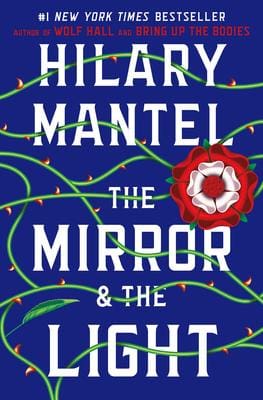
On the other hand—the final book in Hilary Mantel’s Cromwell trilogy was finally out! For historical fiction nuts, that’s like new Star Wars. It doesn’t even have to be great to be enjoyable. Nonetheless, I was entranced by the very first line: “Once the queen’s head is severed, he walks away.” Knowing a different head is severed at the end of the book, you’re already in deep with Mantel who knows you know and says, Come on this glorious, terrible journey with me one last time.
(Is every step of that journey pure bliss? I might be one of those readers who feels there’s a lot of wandering over old territory. For me, Cromwell is more fascinating when he has Henry and his women to play off of. His fortunes turn on these characters and without them, he can seem impregnable. But then Mantel gives you a scene where Cromwell is examining what may or may not be the remains of Thomas Becket and you’re reminded that no one explores the lethality of court life better.)
I’m a passionate re-reader, especially in times of stress. One of my perennials is David Handler’s Hoagy and Lulu series about the celebrity ghost writer whose clients are nearly all killed or killers and his basset hound partner. For me, there is nothing not to love about these books. They’re witty, gossipy, steeped in 80s New York detail, and I never feel insulted by the resolution. Handler is brilliant at doing quick vivid sketches for his cast of suspects—no easy task. After a long absence, Hoagy and Lulu are back. Their latest is The Man in the White Linen Suit.
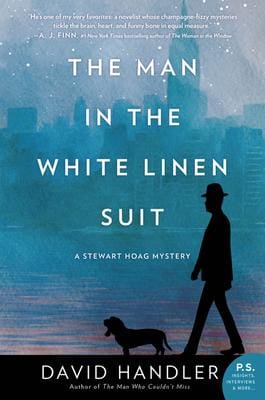
Finally, I’m having a good old wallow in 1911 New York with Nancy Bilyeau’s Dreamland. Inspired by the life of Peggy Guggenheim, the novel follows a Gilded Age heiress through her summer adventure in Coney Island, which includes trying to clear her artist boyfriend of murder. The novel is wonderfully generous with period detail, from wondrous bookshops to high teas and the sights and sounds of the boardwalk. For a New Yorker who can’t wander her city right now, it’s a perfect escape.
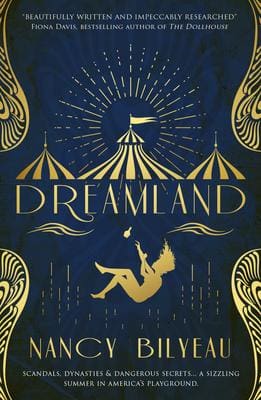
*****
You can order Mariah Fredericks’ Jane Prescott mysteries through the Web Store. https://bit.ly/3cVrFN0
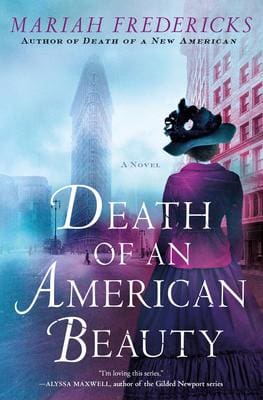
Death of an American Beauty is the third in Mariah Fredericks’s compelling series, set in Gilded Age New York, featuring Jane Prescott.
Jane Prescott is taking a break from her duties as lady’s maid for a week, and plans to begin it with attending the hottest and most scandalous show in town: the opening of an art exhibition, showcasing the cubists, that is shocking New York City.
1913 is also the fiftieth anniversary of Lincoln’s Emancipation Proclamation speech, and the city’s great and good are determined to celebrate in style. Dolly Rutherford, heiress to the glamorous Rutherford’s department store empire, has gathered her coterie of society ladies to put on a play—with Jane’s employer Louise Tyler in the starring role as Lincoln himself. Jane is torn between helping the ladies with their costumes and enjoying her holiday. But fate decides she will do neither, when a woman is found murdered outside Jane’s childhood home—a refuge for women run by her uncle.
Deeply troubled as her uncle falls under suspicion and haunted by memories of a woman she once knew, Jane—with the help of old friends and new acquaintances, reporter Michael Behan and music hall pianist Leo Hirschfeld—is determined to discover who is making death into their own twisted art form.
“Indoor Book Tour”
What’s it like to be an author with a new book out, now forced to do virtual tours, and whatever it takes to sell books? So many of us have enjoyed the Poisoned Pen’s virtual tours with authors in the last couple months. Laura Hankin, author of Happy and You Know It, did a musical video to talk about it from the author’s point of view. And, she includes a shout-out to independent book stores.
Here’s Laura Hankin’s Happy and You Know It, available through the Web Store. https://bit.ly/2WOvxJK
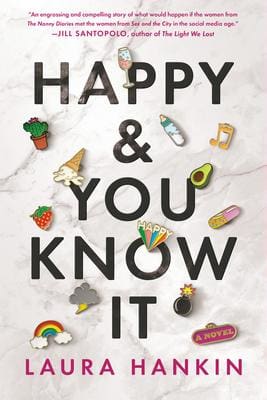
“It’s what would happen if the women from The Nanny Diaries met the women from Sex and the City in the social-media age. I devoured it in less than 48 hours.”—Jill Santopolo, author of The Light We Lost
A dark, witty page-turner about a struggling young musician who takes a job singing for a playgroup of overprivileged babies and their effortlessly cool moms, only to find herself pulled into their glamorous lives and dangerous secrets….
After her former band shot to superstardom without her, Claire reluctantly agrees to a gig as a playgroup musician for wealthy infants on New York’s Park Avenue. Claire is surprised to discover that she is smitten with her new employers, a welcoming clique of wellness addicts with impossibly shiny hair, who whirl from juice cleanse to overpriced miracle vitamins to spin class with limitless energy.
There is perfect hostess Whitney who is on the brink of social-media stardom and just needs to find a way to keep her flawless life from falling apart. Caustically funny, recent stay-at-home mom Amara who is struggling to embrace her new identity. And old money, veteran mom Gwen who never misses an opportunity to dole out parenting advice. But as Claire grows closer to the stylish women who pay her bills, she uncovers secrets and betrayals that no amount of activated charcoal can fix.
Filled with humor and shocking twists, Happy and You Know It is a brilliant take on motherhood ““ exposing it as yet another way for society to pass judgment on women ““ while also exploring the baffling magnetism of curated social-media lives that are designed to make us feel unworthy. But, ultimately, this dazzling novel celebrates the unlikely bonds that form, and the power that can be unlocked, when a group of very different women is thrown together when each is at her most vulnerable.
Angie Kim’s Distractions

When I asked Angie Kim to write a book “Distractions” piece, she had not yet won the Edgar Award for Miracle Creek. Because Miracle Creek went on to win the Edgar for Best First Novel by an American Author, Kim will forever be known as Edgar Award-winning author Angie Kim. You can order a copy of the hardcover, paperback, large print or audiobook through the Web Store. https://bit.ly/3e6FVmh
Angie Kim moved as a preteen from Seoul, South Korea to the suburbs of Baltimore. She attended Stanford University and Harvard Law School, where she was an editor of the Harvard Law Review, then practiced as a trial lawyer at Williams & Connolly. Her stories have won the Glamour Essay Contest and the Wabash Prize for Fiction, and appeared in numerous publications including The New York Times, Salon, Slate, The Southern Review, Sycamore Review, Asian American Literary Review, and PANK. Kim lives in Northern Virginia with her husband and three sons.
Look for Kim’s book suggestions in the Web Store. https://store.poisonedpen.com/
*****
First, may I point out how perfect the title of this blog is? Because the one thing I’ve been consistently hearing from everyone is how distracted we have all been. So many book recommendations I’ve seen in recent days have focused on older titles, and I confess that I’ve also been finding comfort in re-reading old favorites. There’s no risk of disappointment in that—after all, you already know you love it—and even better, it’s easy. And if you do get distracted (and you know you will), it’s fine; you can skim, skip ahead to that passage you underlined or earmarked, or even abandon.
But here’s the thing: there’s so much cocooning and nostalgia you can take before you get sick of them, before you start wondering what you might be missing out on and craving something new. At least that’s the way it’s been for me. This turn has only come in the last week or so, coincidentally (or causally?) around when everyone started discussing whether/how to ease the quarantine restrictions. With that in mind, here are some new releases from the past few weeks that I’ve read and loved, page-turners that will snap you out of that re-reading slump. (Listed in order I read them!)
THE IMPERFECTS by Amy Meyerson:
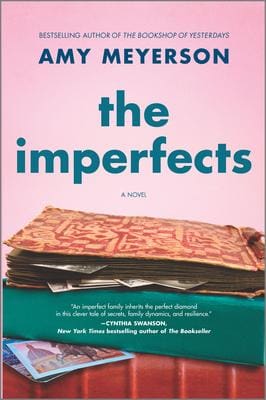
Who doesn’t love stories about world-famous, priceless diamonds? Inspired by the true story of the Florentine Diamond—a 137-carat yellow gemstone that went missing from the Austrian Empire a century ago—this is an expertly-plotted mystery about a hilariously dysfunctional family whose lives are upended when their beloved grandmother dies, leaving them the Florentine Diamond.
PRETTY THINGS by Janelle Brown:
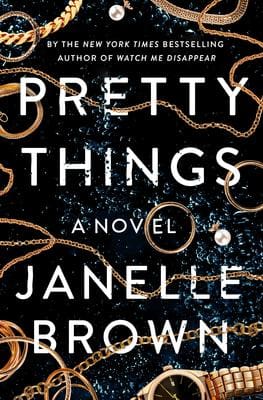
I was in a writing slump when I first picked up Janelle Brown’s fourth novel, and it took me right out of it! The prose is gorgeous, and it inspired me to get back to writing myself. Told in dual narratives by a glamorous Instagram influencer and a scam artist, two women keeping devastating secrets from each other, this twisty novel will keep you guessing until the ending.
TAKE ME APART by Sara Sligar:
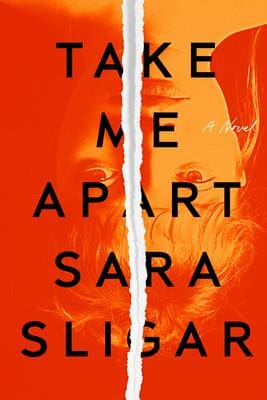
Another beautifully-written novel about two fascinating women, Sara Sligar’s debut explores mental illness, violence, and the nature of obsession. When a young archivist is hired to make sense out of the chaotic personal effects of a renowned photographer who died years earlier, she becomes obsessed with her life and the circumstances of her mysterious death. One of the most satisfying endings I’ve read in some time; it made me cry.
THE BOOK OF V by Anna Solomon:
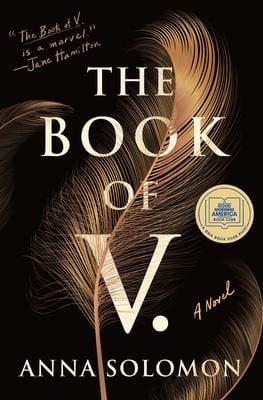
I love the structure of Anna Solomon’s third novel, which tells the life stories of three women across three centuries: a Brooklyn mother in 2016, a U.S. senator’s wife in DC in the 1970s, and the Bible’s Queen Esther in Ancient Persia. It explores similar themes in all three women’s lives—power and powerlessness, sex and desire, friendships and family—and converge. It’s ambitious, it’s feminist, and I can’t recommend it highly enough.
*****
Here’s Miracle Creek, the Edgar Winner for Best First Novel by an American Author.
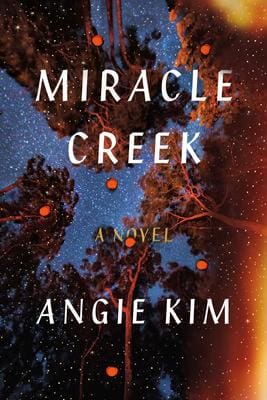
WINNER OF THE EDGAR AWARD FOR BEST FIRST NOVEL
The “gripping… page-turner” (Time) hitting all the best of summer reading lists, Miracle Creek is perfect for book clubs and fans of Liane Moriarty and Celeste Ng
How far will you go to protect your family? Will you keep their secrets? Ignore their lies?
In a small town in Virginia, a group of people know each other because they’re part of a special treatment center, a hyperbaric chamber that may cure a range of conditions from infertility to autism. But then the chamber explodes, two people die, and it’s clear the explosion wasn’t an accident.
A powerful showdown unfolds as the story moves across characters who are all maybe keeping secrets, hiding betrayals. Chapter by chapter, we shift alliances and gather evidence: Was it the careless mother of a patient? Was it the owners, hoping to cash in on a big insurance payment and send their daughter to college? Could it have been a protester, trying to prove the treatment isn’t safe?
“A stunning debut about parents, children and the unwavering hope of a better life, even when all hope seems lost” (Washington Post), Miracle Creek uncovers the worst prejudice and best intentions, tense rivalries and the challenges of parenting a child with special needs. It’s “a quick-paced murder mystery that plumbs the power and perils of community” (O Magazine) as it carefully pieces together the tense atmosphere of a courtroom drama and the complexities of life as an immigrant family. Drawing on the author’s own experiences as a Korean-American, former trial lawyer, and mother of a “miracle submarine” patient, this is a novel steeped in suspense and igniting discussion. Recommended by Erin Morgenstern, Jean Kwok, Jennifer Weiner, Scott Turow, Laura Lippman, and more– Miracle Creek is a brave, moving debut from an unforgettable new voice.
*****
A month ago, Barbara Peters, owner of The Poisoned Pen, had a chance to talk with Angie Kim.
Francine Mathews Talks Crime in New England
Actually, Francine Mathews, author of the Merry Folger Nantucket Mysteries, was talking about “A Tide of Murder: Detective Novels Set on New England’s Cape and Islands” for CrimeReads, https://bit.ly/2Tj3noi. She’ll also be talking about Nantucket and her latest mystery, Death on Tuckernuck, when she appears for a virtual event on Saturday, June 6 at 1 PM MST. You’ll be able to “attend” at the Poisoned Pen’s Facebook page.
Here’s the latest Merry Folger Nantucket mystery. There are signed copies available through the Web Store. https://bit.ly/2Zf0o3T
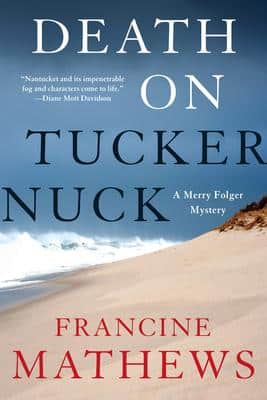
In the Category 3 winds of a late-season hurricane, Nantucket police detective Merry Folger and her team attempt a rescue off the secluded island of Tuckernuck—only to discover a deadly secret.
As a Category 3 hurricane bears down on Nantucket, Dionis Mather and her father have their work cut out for them. Their family business is to ferry goods and people back and forth from Tuckernuck, the private island off Nantucket’s western tip, a place so remote and exclusive that it is off the electric grid. As caretakers of the small plot of sand in the middle of the Atlantic, the Mathers are responsible for evacuating Tuckernuck’s residents, who range from a stubborn elderly native who refuses to leave her family home to the abandoned summer house pets of an absentee NFL quarterback. But as the storm surge rises and the surf warnings mount, Dionis has to make a choice: abandon whatever—or whoever—was left behind, or risk her own life by plunging back into the maelstrom. Even she has no idea what evil the hurricane is sheltering.
When the coast guard notifies the Nantucket police of a luxury yacht grounded in the shoals off Tuckernuck’s northern edge—with two shooting victims lying in the main cabin—detective Meredith Folger throws herself into an investigation before the hurricane sweeps all crime-scene evidence out to sea. Merry is supposed to be on leave this weekend, dancing at her own wedding, but the Cat 3 has thrown her blissful plans into chaos. As her battered house fills with stranded wedding guests and flood waters rise all over Nantucket Island, Merry has her own choice to make: How much should she risk in order to bring a criminal to justice?
